I was contacted by a documentary film maker, David Munro, a couple of weeks ago to talk to him about my time in LRY, the youth organization of the Unitarian church which existed from 1954-1982. A family friend had given him my name as he is considering making a movie about the organization I was a member of from the time I was thirteen until I went away to college at seventeen. I was a member for its last years until it was disbanded by the church. I’ll begin by saying there are a lot of great people I know as Facebook friends, some who have gone on to be Unitarian ministers, others musicians and artists, teachers, a food photographer, a couple of attorneys. Lots of really wonderful people. But. There’s always a but, and I won’t be able to or want to give all the details of my time in LRY. But David and I had a long and winding conversation, and it led us both to the conclusion that what happened to me during those four very formative years had a cultlike feel to it, or what Amanda Montell in her book about the language of fanaticism calls Cultish.
I’ve reviewed various definitions of cults (there is no one agreed upon definition), and LRY doesn’t fit the common mold of one powerful leader or financial pressure. But I was brought in to the group during a vulnerable stage of my life, thirteen is vulnerable no matter how you cut it, and my parents were divorcing and were traumatized in their own ways, and LRY welcomed me in as a new family, as an escape from pain. For the four years I was involved with Liberal Religious Youth, they offered me refuge from what was a really difficult and chaotic life. My life began to revolve around the group. And like any family, there were norms and expectations, and rules around belonging.
Now for some hard stuff. I was abused sexually numerous times. I was introduced to lots of drugs and used them throughout my time with LRY. It was normalized, as if what was happening to me (and others) was ok because I looked and acted older than I was, because everyone was doing it, because it was a “safe” environment for all this stuff. But it really wasn’t safe, and most of the time I was so drugged out I didn’t realize exactly what was happening. Many of my memories are foggy, but I feel them viscerally. I know what happened.
There are some stories that are not ours to tell. I struggle with this sometimes because I find people and their behavior so interesting. But this is my own story to tell, and it is clear to me that there may be hurt feelings and probably anger toward me. However looking at what happened through the lens of today’s more evolved view of what abuse is, it is clear that the Unitarian Church did many of us a serious disservice as we developed through our teens. I’ve read through transcripts from other women in the group who confirm my thoughts about the normalization of random sexual activity and the inappropriateness of the advisors who were supposed to protect us. I read about how Ken Kesey and his Merry Pranksters came to a conference in the 60’s and brought LSD for everyone, which began a tradition within some groups of tripping at conferences, along with the alcohol and pot of course. Not everyone was doing drugs and having sex. It wasn’t universal within the group but it was common and the crowd I was aligned with, were the heavy hitters.
There were weekend and week-long conferences at various churches, most I attended were in the Northeast. There were adult “advisors,” usually two or three people in their forties. But they did nothing to enforce any guidelines. They felt more like older participants. And the age range within the group lent itself to problems. I was the youngest at thirteen, and oldest members were in their early twenties. When the first abusive event happened, I was thirteen and he was twenty-three. Last year I found out that he died through Facebook and everyone was sending condolences and good vibes to his wife. All I could think was “I’m so glad he is dead.” I sent a couple DM’s to my friends who are now ministers and told them the truth about this guy, his name was Dave. One in particular responded apologetically and with compassion, but it was obvious his own experience was vastly different from mine.
This is complex, because I loved the people in LRY. They were my best friends and felt like family. There was fun and warmth and laughter and music. There were lots of good times. But there was absolutely no supervision, it was by definition an autonomous organization, and ultimately LRY was disbanded in 1982, and replaced with an organization with more church control called YRUU, for the very reasons I state above. It became apparent to the church that they had a huge liability on their hands and changes needed to be made.
I've been researching LRY, cults in general, other kinds of organizations which are cultish, and will write about them more in the coming weeks. I'm dipping my toe in the water of what feels vast and at the same time so personal.
I am particularly interested in the ways in which language shapes groups. Jargon, terminology which bring people to a space of belonging, makes them feel special, and at the same time has the power to convert, condition, and coerce (Montell). As Wittgenstein so aptly stated: “The limits of my language means the limits of my world.”
Do you have experiences which felt cultish too? I'd love to hear about them.



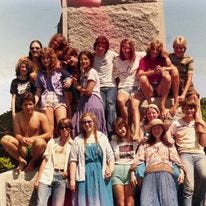
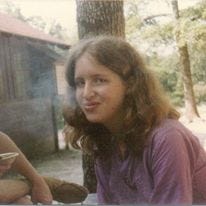
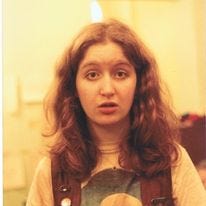
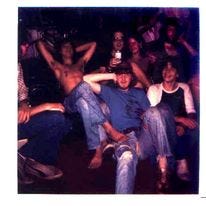
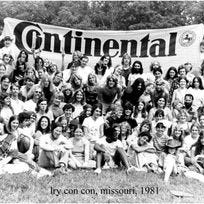
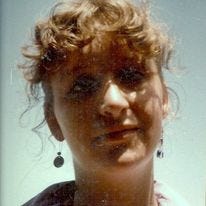
I just read a great book on the subject called “Cult: a love story” by Alexandra Amor. She tells her story in a cult and also brings in a ton of research and I think that you would enjoy it if you haven’t already read it. And I loved reading this and look forward to more of what you write on the subject matter, ;)